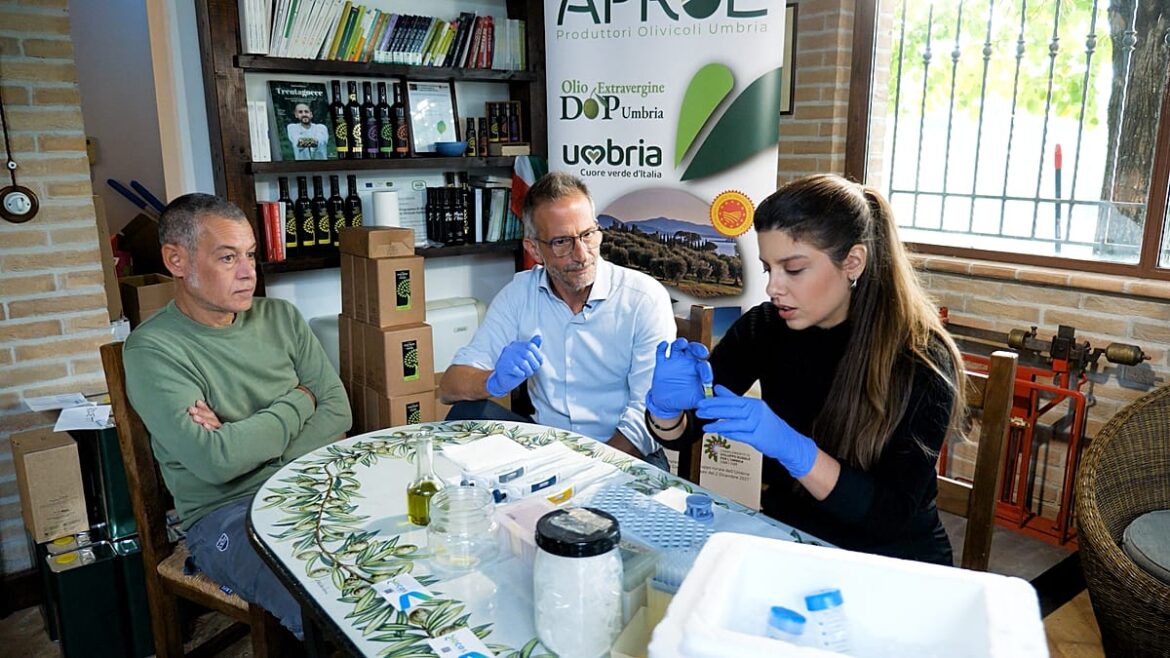Published on
17/11/2025 – 15:00 GMT+1
Every bottle of olive oil has its own story. But behind some bottles hides a different tale – one of fraud and deception.
“Olive oil is the food that is most subject to adulteration and to fraud among all food products,” explains food detective Nicolò Cultrera, pilot leader of the EU Watson Project and expert in biogenetics at the National Research Council, Italy’s largest public research institution.
Cheaper seed oils, lower-quality olive oils and other substances are often blended and sold as premium products. Such fraud undermines consumer trust, may impact health, and threatens honest producers. “The price of olive oil can range from very low to very high, creating a wide margin where fraud can occur,” Cultrera adds. “This is exacerbated by the fact that the oil value chain is extremely fragmented.”
A DNA test kit brings the lab to the mill
Olive oil maker Antonella Meyer-Masciulli is working with the Food Detectives in their fight against fake oil. She uses DNA testing to verify that her oils truly come from the olives she buys, focusing on old varieties from ancient trees that have stood for centuries around the town of Amelia, in the hills of Umbria, central Italy.
“Many producers market their products with photos of thousand-year-old trees, but in the end, the oil doesn’t come from those trees. We chose to have our oils DNA-tested to create more transparency and trust with our consumers,” she tells Euronews.
Such genetic testing is still rare among olive oil producers, as it takes time and money. Until now, it has mostly been done in research labs — but the Food Detectives are bringing the lab directly to the mill, making DNA tests faster, cheaper, and more accessible.
Food Detectives Stelios Arhondakis and Sofia Tzagkaraki from the Greek biotech company BioCoS are developing a device called Field DNA, which can isolate DNA in field conditions. They tested it for the first time in a mill in Bettona, Umbria. “We just opened the door for the first time in the world to do a DNA testing of an olive oil outside of a lab,” says Arhondakis. They hope to launch it within the next few months.
Transparency from tree to bottle
The sector has welcomed such innovation. “Having a test that guarantees that an oil truly comes from a specific tree is the most rewarding thing there is,” says Giulio Mannelli, president of Aprol Umbria, the association representing olive oil makers, packagers, and millers in the region. “The Watson Project brings us transparency and clarity, and that’s something consumers are looking for more and more.”
Following the DNA tests, the Food Detectives are taking traceability one step further by giving each bottle a digital passport. “Consumers could easily access, via a QR code, the entire history of the oil, from the field where the olives were harvested to the batch and bottle number they purchased,” concludes Cultrera.
Euronews creates The Food Detectives
The Food Detectives series follows the research carried out within the EU’s Watson Project, funded by the Horizon Europe programme. Euronews is a member of the Watson consortium, alongside 46 partners from academia and industry across Europe. The project aims to give food-safety authorities better tools to detect and prevent food fraud.
Join us for The Food Detectives LIVE EVENT on the Euronews YouTube channel on Thursday 27 November at 17:30, live from Brussels.


Dining and Cooking